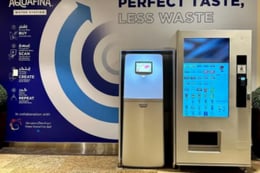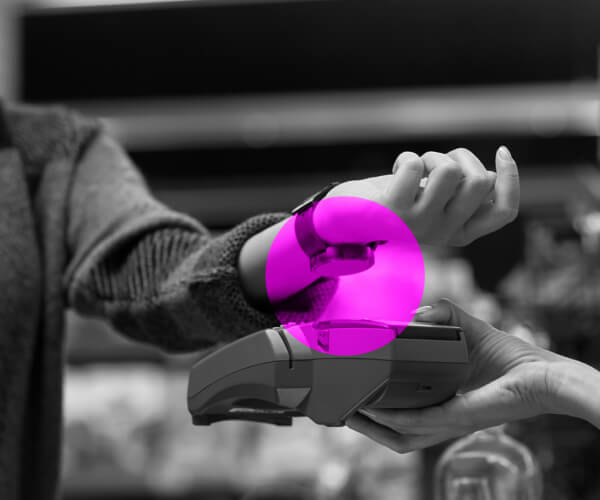As we wake up to the harsh realities of climate change, the importance of sustainability becomes more than an aspiration in our lives. While the need has been discussed and espoused for over two decades now, concerted action is only now being considered with urgency. We have learned over time that sustainability is an important challenge that requires investments, sacrifices, compromises, and commitment. There needs to be a determination to achieve sustainability at any cost and this begins with incorporating and building it into a brands strategy. Implementation is as important as the strategy itself and in it, communication to the end-user is key. This is certainly part of the larger corporate agenda now in the Middle East and North Africa as governments are leading the charge by taking high profile initiatives and becoming more sensitive to this need (e.g. public discouragement of single use plastic bags in most ME countries).
 Since consumer goods form bulk of consumption, the FMCG corporations have committed themselves to the sustainability agenda in earnest in this region. With commitments to using green energy, reducing the use of plastics, incorporating reusable packs, and using bio-degradable material, there are actions being taken every day by corporations in the region. Not all actions may have an impact on the end consumer, but every one of them contribute to the cause. It is important that the consumer derives the desired usage experience from the product while also being more friendly to the environment.
Since consumer goods form bulk of consumption, the FMCG corporations have committed themselves to the sustainability agenda in earnest in this region. With commitments to using green energy, reducing the use of plastics, incorporating reusable packs, and using bio-degradable material, there are actions being taken every day by corporations in the region. Not all actions may have an impact on the end consumer, but every one of them contribute to the cause. It is important that the consumer derives the desired usage experience from the product while also being more friendly to the environment.
There is increasing evidence that Middle East consumers are conscious of the need for packaging change and are receptive to new solutions. While it is clear from global studies that sustainability initiatives help enhance brand image and promote loyalty in the longer term (may or may not impact immediate sales), it is also well known that shoppers look to brands and retailers to provide the knowledge and communication that will nudge what is required for ‘behavior change’.
It is not only important to commit to sustainability, but also to guide stakeholders along with us. The consumer is a critical component in this process and enabling understanding through relevant communication is as important as the action itself.
The universal principles of communication remain relevant, and they are:
- What to communicate (not all initiatives impact usage, choose the most impactful communication)
- When to communicate (identify the ‘touch points’ in the shopper journey)
- The reason why (demonstrate the change)
- How to change (to ‘nudge’ behavior change)
- Who to communicate to (the decision maker) for the desired action
The Behaviorally Sustainability Practice team has been working with clients across the globe on testing sustainability initiatives in packaging and advising them on the most effective solutions in this regard over many years. Our specific experiences with sustainability in packaging research using PackPath™ (qualitative) and PackFlash® (quantitative) along with TransactionPath™, our shopper understanding protocol, have been used extensively by FMCG corporations for their global and local initiatives. While TransactionPath provides specific insights into shopper behavior along the holistic shopper journey, and hence helps formulate the best strategy to induce change, PackFlash helps understand whether the approach is communicated at the shelf when the purchase decision is made and whether it has the desired impact.
The importance of focusing sustainability strategies on the consumer cannot be understated. Our global experiences in this context, assimilated from various countries indicate:
- Consumers want to ‘care’ (be environmentally friendly) (i.e., “I would like to care for the environment”)
- Consumers want brands and retailers to take the lead (i.e., “Please point me in the right direction”)
- Positive messages work better with consumers (i.e., “Please tell me what I should do”)
- Brands face skepticism when making claims (‘green washing’ is a serious concern causing consumers to question, “How do I believe the claim?”)
- Clarity on action steps is important (communicating clearly and outlining the steps that need to be followed)
- Behavioral nudges, such as providing reminders and tools (e.g., small bins or boxes for dropping empty packs for recycling, or reminders on packs for follow-up actions), can help facilitate ‘real change’ and encourage adherence to established processes
 A classic example of ‘nudging changing’ is a recent action taken in the UAE to provide public water bottle filling stations to reduce the use of single-use plastic. Simply, the station provides an alternative solution to bottled water, acts as a reminder, and enables to process of ‘habit change’.
A classic example of ‘nudging changing’ is a recent action taken in the UAE to provide public water bottle filling stations to reduce the use of single-use plastic. Simply, the station provides an alternative solution to bottled water, acts as a reminder, and enables to process of ‘habit change’.
We expect that the current urgency and sensitivity both from a consumer and corporate perspective will spur more initiatives in the sustainability domain. The Behaviorally team constantly updates its knowledge and compiles trends to assist consumer-focused companies in formulating effective strategies that draw upon local and global experiences, providing valuable support for such initiatives.
For more information on how we can help you understand and influence the sustainable Middle East and Africa shopper, please contact Abhik Gupta.
THE AUTHOR

Abhik Gupta is a seasoned industry professional and heads Behaviorally’s Dubai office as Vice President. With an impressive career spanning over 25 years, Abhik has held leadership positions at renowned companies such as Nielsen, GfK, and Colgate-Palmolive. He is widely recognized as an industry thought leader, speaker, academic, and author. Connect with Abhik Gupta on LinkedIn.
